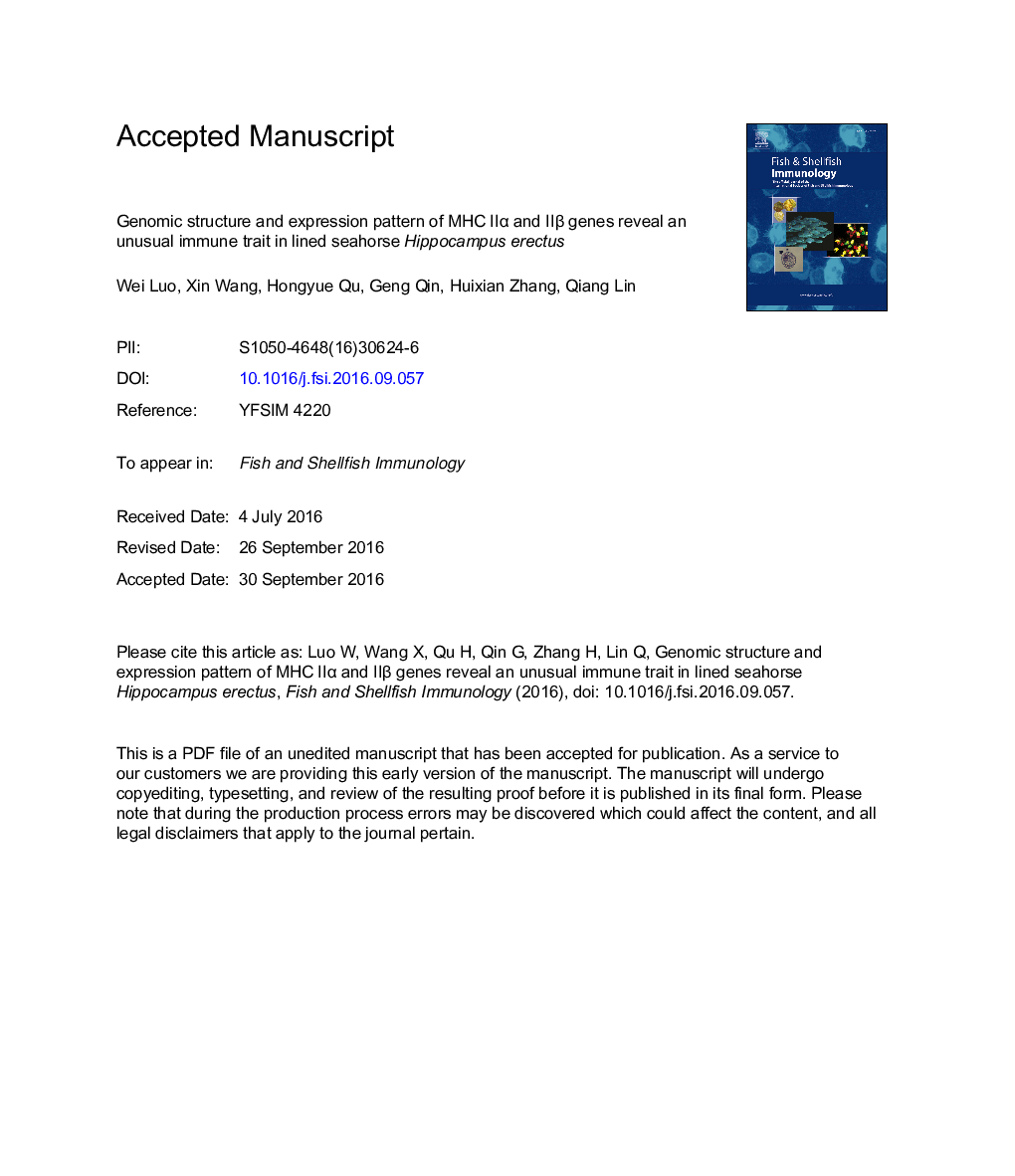| Article ID | Journal | Published Year | Pages | File Type |
|---|---|---|---|---|
| 5540640 | Fish & Shellfish Immunology | 2016 | 40 Pages |
Abstract
The major histocompatibility complex (MHC) genes are crucial in the adaptive immune system, and the gene duplication of MHC in animals can generally result in immune flexibility. In this study, we found that the lined seahorse (Hippocampus erectus) has only one gene copy number (GCN) of MHC IIα and IIβ, which is different from that in other teleosts. Together with the lack of spleen and gut-associated lymphatic tissue (GALT), the seahorse may be referred to as having a partial but natural “immunodeficiency”. Highly variable amino acid residues were found in the IIα and IIβ domains, especially in the α1 and β1 domains with 9.62% and 8.43% allelic variation, respectively. Site models revealed seven and ten positively selected positions in the α1 and β1 domains, respectively. Real-time PCR experiments showed high expression levels of the MHC II genes in intestine (In), gill (Gi) and trunk kidney (TK) and medium in muscle (Mu) and brood pouch (BP), and the expression levels were significantly up-regulated after bacterial infection. Specially, relative higher expression level of both MHC IIα and IIβ was found in Mu and BP when compared with other fish species, in which MHC II is expressed negligibly in Mu. These results indicate that apart from TK, Gi and In, MU and BP play an important role in the immune response against pathogens in the seahorse. In conclusion, high allelic variation and strong positive selection in PBR and relative higher expression in MU and BP are speculated to partly compensate for the immunodeficiency.
Keywords
Related Topics
Life Sciences
Agricultural and Biological Sciences
Aquatic Science
Authors
Wei Luo, Xin Wang, Hongyue Qu, Geng Qin, Huixian Zhang, Qiang Lin,
